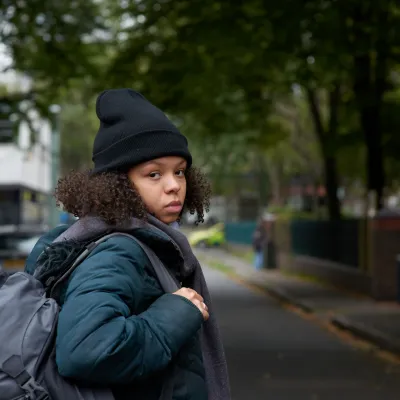Happy New Year from everyone here at Centrepoint and a special thanks to everyone who supported us last year.
2019 marks Centrepoint’s 50th anniversary, so we’ve been taking some time to reflect on what keeps us going. In short, it’s the drive to ensure that every young person has a safe place to stay, with the support they need to find a home and a job in 2019.
Looking to the year ahead, we’ve picked out Centrepoint’s top five New Year’s Policy Resolutions’. To achieve these priorities, we’ll work alongside policy makers and shapers to ensure that together we give homeless young people a future.
Centrepoint's top five New Year’s policy resolutions
1) Secure Homelessness Reduction Act funding beyond 2020 and increase levels of funding in local areas where the demand is highest
In 2017/18, over half of councils said they did not receive enough funding to support the number of young people requesting help due to homelessness. It's essential that councils do not face a funding gap as this will affect their ability to plan ahead for homelessness prevention
2) Universal Credit must not force young people into homelessness or prevent them from moving on from homelessness
Several preventative measures could ensure homeless young people can better afford to rent, including:
- aligning Universal Credit rates more closely with the actual cost of renting a private property
- exempting homeless young people from the lower rate housing benefit
- increasing the Universal Credit standard allowance for under-25s with housing costs
3) Increase the supply of social rented housing and shared accommodation in the private rented sector
Direct government investment is needed to increase the supply of genuinely affordable homes and to ensure that age-specific accommodation is available for young people moving on from supported housing. To increase options for people on low incomes to rent privately, local planning and licensing regulations should be reviewed to encourage an increase in the availability of shared accommodation.
4) Allow greater flexibility in social housing allocations so homeless young people aren’t locked out of the social housing market
Due to high demand for social housing, applicants on waiting lists are often prioritised according to certain eligibility criteria, including affordability assessments. In 2019, social housing providers should take into account individual applicants’ circumstances, ensuring their allocations and eligibility policies do not contradict the local homelessness strategy.
5) Introduce a work allowance for young people in supported housing
This will help young people save more of their wages towards a deposit and ensure that Universal Credit works for young people in flexible employment. For example, if someone aged 18-20 years old takes on 20 hours work per week on a minimum wage, their income increases by a mere £40 due to the taper rate. However, if they were granted a work allowance they could instead save an extra £120 towards finding longer-term accommodation.






